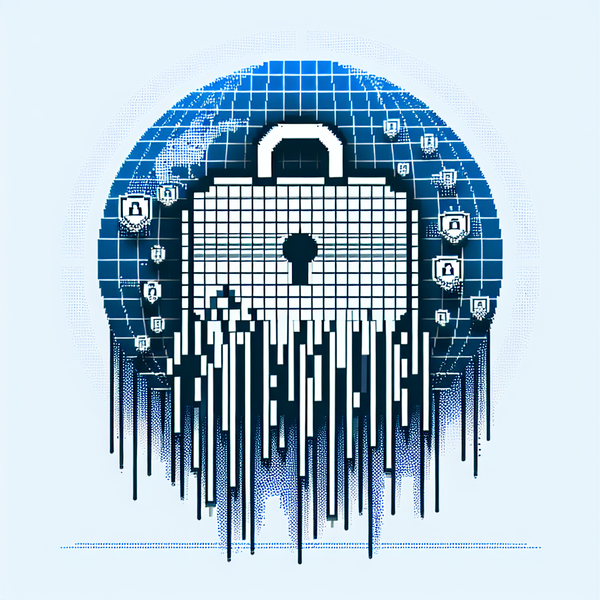Secret CISO 6/30: SK Telecom's Brand Hit, Hannaford's Mainer Breach, Sinaloa's FBI Hack, Germany-Israel Cyber Alliance

Welcome to today's edition of Secret CISO, where we unravel the intricate web of cybersecurity challenges and breakthroughs shaping our world. In this issue, we delve into a series of alarming data breaches and their far-reaching consequences, from SK Telecom's plummeting brand value to AT&T's hefty settlement, and the chilling tale of the Sinaloa cartel's cyber espionage.
We also spotlight the vulnerabilities lurking in everyday technology, as researchers expose Bluetooth flaws that could turn your microphone into a spy tool, and a critical flaw in Google Chrome that threatens millions of Android users. Meanwhile, the healthcare sector faces its own cybersecurity crisis with Myrtue Medical Center's massive data breach.
On a global scale, we explore the collaborative efforts of Germany and Israel to fortify cyber defenses, while Australia seeks to redefine its research security landscape. Finally, we examine the controversial application of Hong Kong's National Security Law, raising questions about justice and freedom.
Join us as we navigate these pressing issues, offering insights and strategies to safeguard your digital frontier.
Data Breaches
- SK Telecom drops sharply in brand value in Q2 after data breach: SK Telecom, Korea's largest mobile carrier, experienced a significant drop in brand value rankings due to a data breach that impacted its entire customer base. The breach has raised concerns over the security measures in place and the potential long-term effects on customer trust. Source: Korea JoongAng Daily
- Over 95,000 Mainers affected by Hannaford cybersecurity breach: A cybersecurity breach at Hannaford affected over 95,000 Mainers, compromising personal information such as names, home and email addresses, and Social Security numbers. The breach has prompted increased scrutiny on the company's data protection practices. Source: WMTW
- AT&T agrees to a $177 million payout after data breaches: AT&T has agreed to a $177 million settlement following two waves of data breaches that occurred in 2019. The breaches exposed sensitive customer information, leading to significant legal and financial repercussions for the company. Source: MySA
- Sinaloa drug cartel used hacker to track FBI official: A major security breach allowed the Sinaloa drug cartel to track an FBI official's movements and communications, leading to the targeting and killing of potential informants. This breach highlights the severe risks associated with compromised operational security. Source: ABC7
- Myrtue Medical Center Data Breach: 1.2TB of Data Stolen: Myrtue Medical Center suffered a data breach involving 1.2TB of data, potentially exposing personal and health information of patients. The breach underscores the critical need for robust cybersecurity measures in healthcare institutions. Source: Claim Depot
Security Research
- Hong Kong: National Security Law analysis shows vast majority unjustly arrested: Amnesty International's research on the fifth anniversary of Hong Kong's National Security Law reveals that the vast majority of the 255 individuals analyzed were unjustly arrested. This analysis highlights significant concerns about the misuse of the law to suppress dissent and curtail freedoms. Source: Amnesty International.
- Making Australia's research security ecosystem work smarter: The National Tribune discusses the importance of enhancing Australia's research security ecosystem to foster innovation and economic growth. The article emphasizes the need for a clear national definition of 'research security' to eliminate confusion and resistance within the research community. Source: The National Tribune.
- Germany and Israel to Launch Joint Cyber Research Center for Enhanced Security: Germany and Israel are collaborating to establish a joint cyber research center aimed at bolstering intelligence and security cooperation. This initiative seeks to enhance defense capabilities and address emerging cyber threats. Source: Mezha.
- Bluetooth flaws could let hackers spy through your microphone: At the TROOPERS security conference in Germany, researchers unveiled significant Bluetooth vulnerabilities that could allow hackers to eavesdrop through microphones. These findings underscore the need for improved security measures in Bluetooth-enabled devices. Source: Bleeping Computer.
- Google Chrome to stop working on millions of Android phones from August: Security researcher Vsevolod Kokorin discovered a flaw in Google Chrome that could lead to account takeovers if left unpatched. This issue will render the browser inoperable on millions of Android devices, highlighting the importance of timely updates. Source: Gulf News.
Final Words
As we wrap up today's edition of Secret CISO, it's clear that the digital landscape is fraught with challenges and opportunities. From SK Telecom's brand value plummet following a data breach to the unsettling revelations of the Sinaloa cartel's hacking capabilities, these stories remind us of the critical importance of robust cybersecurity measures. The breaches at Hannaford and Myrtue Medical Center further underscore the vulnerabilities that can impact both individuals and organizations alike.
Meanwhile, on the global stage, initiatives like the joint cyber research center between Germany and Israel offer a beacon of hope, showcasing the power of collaboration in enhancing security. Similarly, the call for a smarter research security ecosystem in Australia highlights the need for clear definitions and strategies to foster innovation safely.
As we continue to navigate these complex issues, remember that staying informed is our best defense. If you found today's insights valuable, please consider sharing this newsletter with your friends and colleagues. Together, we can build a more secure digital future.
Until next time, stay vigilant and stay safe.




